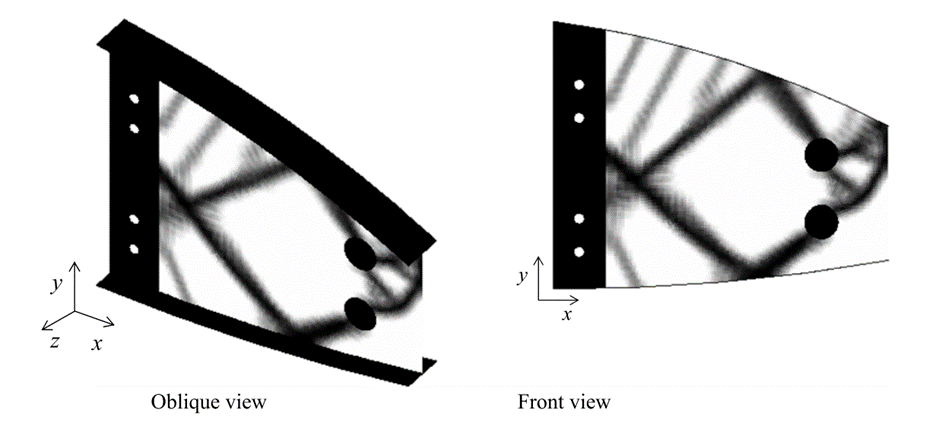[37] Toward a stress-based topology optimization procedure with indirect calculation of internal finite element information
S. H. Jeong, S. H. Park, D.-H. Choi, and G. H. Yoon. Computers & Mathematics with Applications 66, no. 6 (2013): 1065-1081.
In this work, a novel computational approach is developed for the gradient-based stress based topology optimization method, where the volume is minimized according to locally defined stress constraints of static failure criteria in the framework of tailored finite element (FE) software without direct access to an internal finite element information database. Tailored finite element codes that require substantial understanding and modification (reprogramming) or do not directly provide internal finite element information have rarely been used for stress-based topology optimization with solid isotropic material with penalization (SIMP) methods. Therefore, much research has been confined to two dimensional problems with rectilinear basic finite elements, as complex three-dimensional geometries with advanced finite element formulations are not supported. To overcome this problem, we developed a new computational procedure for sensitivity analysis without direct access to an internal information database, a task that has previously been regarded as almost impossible. Since the calculation of linear strain–displacement matrices is required in the sensitivity analysis, the present procedure includes a node selection algorithm to efficiently calculate the matrices of irregular-shaped finite elements by displacement perturbations. The benefits of the present approach are that well-established powerful finite element codes, i.e., commercial or sophisticated public FE codes, can be easily incorporated for linear stress-based topology optimization, and any type of finite element formulation can be readily employed. In contrast to classical sensitivity analysis, small computations are used for sensitivity analysis in this work. To demonstrate the validity and efficiency of the present procedure and approach, several topology optimization problems with 3D and shell elements are solved.
